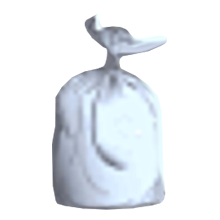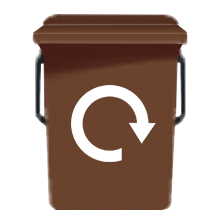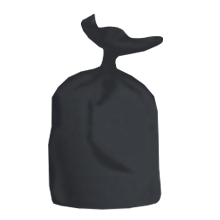Here you will find common myths associated with the HSE and different industries and topics around Guernsey
Myths relating to:
Asbestos
Is there a link between the growth of lichens and asbestos roofs?
- Lichen is a combination of algae and fungus.
- Roofs, rocks and many surfaces including asbestos can be used as substrata for lichens to grow upon though lichens are not a pre-cursor to asbestos.
- Lichens can be shrubby branches (fruticose), leafy structures (foliose) or crusty patches known as crustose. All types of lichen can come in varying shapes and sizes and come in a variety of colours including bright yellows, browns, blues and greens.
- It is not recommend to pressure wash lichens as if the roof is asbestos it can degrade the roof.
- A study on the effects of lichens on asbestos cement roofs by Favero-longo et al. (2009) concluded that the bioweathering effect of lichens on asbestos cement roofs reduced fenton activity and toxicity of the asbestos and led to a partial inactivation of fibres. Favero-longo et al. (2009) 'Lichens on asbestos-cement roofs: Bioweathering and biocovering effects', Journal of hazardous materials, 162 (2-3), pp1300-1308. However, this does not negate the need for adequate care.
Accidents
There is nothing employers can do about slips and trips in the work place
- The reality is that most slips and trips are preventable and many happen when spills aren't cleared up or materials and debris not tidied away. Not clearing up and tidying can result in injury and islanders having time off work or dealing with life changing consequences. The reality is that simple actions can prevent this.
- More information on slips and trips can be found here.
Education
Children are banned from playing with conkers at school
- One of the oldest myths associated with the HSE is that the HSE has banned conkers or insists on the use of padded gloves and goggles. This is not true.
- Playing with conkers presents a very low risk.
Students banned from throwing mortar boards at graduation
- It is a myth that graduates on the island are banned from throwing their mortar boards in the air to celebrate their graduation.
- The chance of being injured by a flying mortar board is incredibly small, the concern is actually about the hats being returned in good condition, it's time to stop blaming health and safety.
Students are banned from throwing snow balls
- It is a myth that students are banned from throwing snow balls and enjoying this traditional pastime.
- We need to focus on finding ways for things to happen, not reasons to stop them, a sensible approach to managing risk focuses on practical actions to tackle risks that cause real harm and suffering.
If a student is hurt, the teacher is likely to be sued
- The main legal duties lie with employers, not a teacher - or even the head teacher, unless they own the school and employ the staff.
Decorations and events
The HSE bans people from putting up bunting
- There are no regulations banning islanders from hanging bunting at events such as Liberation day.
- The HSE encourages people to have a bit of common sense about their attitudes to risk, not to make everything risk-free. The HSE will not be cutting down bunting or insisting flags are lowered.
- The HSE exists to prevent people being killed or injured at work, not to stop people celebrating in a sensible manner.
The HSE bans office decorations for islanders
- It is a myth that islanders are not allowed to decorate the office for Easter, Christmas, Hanukkah or any other such events in the name of health and safety.
- Employers on the island need to provide their staff with suitable methods to erect decorations.
The HSE has banned bonfires on the island
- Over the coming months, islanders will be enjoying events such as Diwali and Guy Fawkes Night celebrations. So if you're organising a public event, now or at any other time, don't let it go up in smoke - take practical steps to manage the risks responsibly, and sensibly.
Health and safety laws banned hanging baskets
- This myth stems from the UK where in 2004 a town did take down its hanging baskets over fears that old lamp posts would collapse. This was in fact a councils overly-cautious reaction to a low risk.
- More information on sensible and proportionate risk management can be found here.
Footwear
The HSE has banned islanders from wearing flip-flops to work
- During the summer, many islanders think about wearing sandals or flip-flops to work to help stay cool. Health and safety laws do not ban them. However, slips, trips and falls account for about 30% of all workplace accidents, and what you wear on your feet can make a difference. So, if you work somewhere where the floor can't be kept dry or clean then wearing shoes that fit well and have a good grip would be a better choice than flip-flops.
- Employers should do a risk assessment to determine what footwear is appropriate for the environment,
Legislation
The risk assessment is too complicated for me to do!
- Conducting a risk assessment is a simple task and more guidance for islanders can be found here.They focus on risks and hazards that cause real harm and, more importantly, taking action to control them.
- You do not need to include insignificant risks. You do not need to include risks from everyday life unless your work activities increase the risk.
UK Law does not apply in Guernsey!
- In law, the word "precedent" is used to describe a decision of a senior court which is binding on (must be followed or applied by) a court of equal or lower status in a later case. Hence, also, "binding precedent". In summary, English decisions, laws and regulations are not strictly binding in Guernsey courts but that they are of high persuasive value and will frequently be followed in the absence of special circumstances or local precedent in Guernsey. In short it is a fact or decision which establishes a pattern to be followed.
- In practical terms this means that if there is no specific Guernsey legislation applicable, HSE Guernsey will use UK legislation, approved codes of practice and guidance as the appropriate standard to benchmark health and safety compliance. Where appropriate this information is used in prosecutions, and other enforcement action, to demonstrate to the Guernsey Courts the reasonably practicable precautions available to duty-holders which should have been in place. This pattern has been accepted, established and is therefore now followed in the Guernsey courts.
Is it too hot to work?
- There are no laws dictating when it is too hot to work, there is also no maximum working temperature.
- However, employers must: A) Keep the temperature at a reasonable and comfortable level, also know as thermal comfort, and B) provide clean and fresh air.
- A reasonable temperature for a workplace depends on work activity and the environmental conditions of the workplace.
- More guidance for islanders about working in hot conditions indoors and outside can be found here.
You don't need to secure your load if you're just driving down the road
- If not properly secured, vehicle loads can become unsafe, even over a short distance.
- Loads that haven't been firmly tied down increase the risk of vehicle rollover and spillage. They risk the lives of drivers, other road users, and the public and can also cause annoying traffic disruption.













